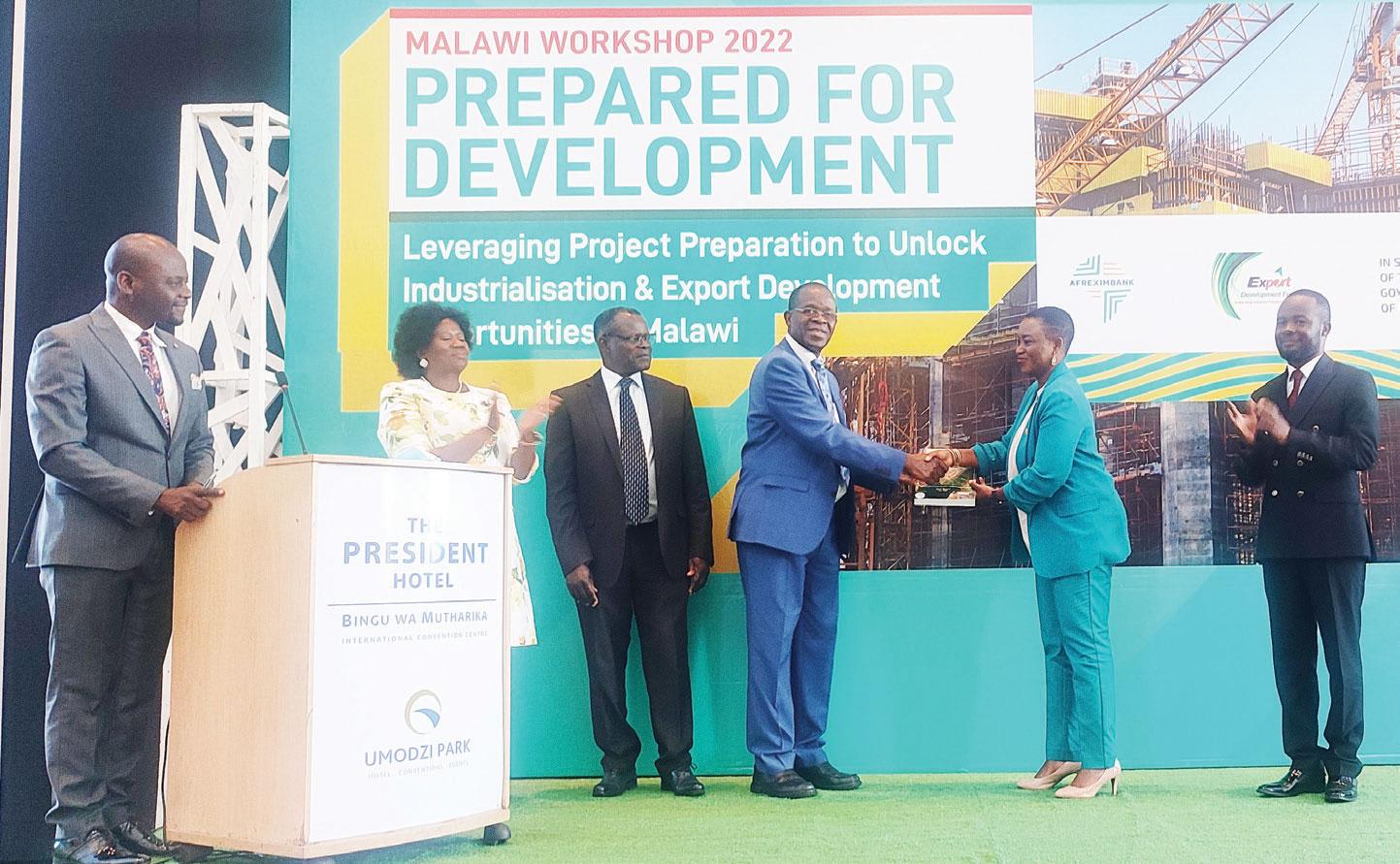Africa-Press – Malawi. Pan-African multilateral trade finance institution, Africa Export-Import Bank (Afreximbank), has set aside $6 million (about K6 billion) for the Special Economic Zones initiative in the country.
The money would be spent on setting up two industrial parks, Magweru and Matindi, according to Afreximbank Export Development Director Oluranti Doherty. She was speaking yesterday at a joint preparation facility sensitisation workshop in Lilongwe.
The projects, earmarked to create 24,000 job opportunities, would attract $900 million (about K913.5 billion) worth of investment, according to Century Gothic. She said she was impressed with the commitment made by the government towards making the initiative materialise.
“I am happy that the Malawi Government has concluded feasibility studies for the Magweru and Chigumula industrial park. The bank has already established funds for the start of the projects,” Doherty said.
The zones would propel creation of industries, job opportunities, increased export of Malawian manufactured goods, expansion of cities and make available land for houses to reduce slums and for businesses in view of Malawi 2063’s industrialisation agenda.
The government already earmarked 624 hectares across three regions to develop the special economic zones which will transform cities and provide jobs through value-addition of export oriented products and other products that can compete favourably with imports.
In an interview on the side-lines of the workshop, Minister of Finance Sosten Gwengwe said zones would help towards attaining the country’s aspiration of creating wealth for all.
“Government is facilitating the establishment of several industrial parks across the country — in Lilongwe, Blantyre and Mzuzu — to achieve massive industrialisation,” Gwengwe said.
In his address, Minister of Industry Mark Katsonga Phiri said the Afreximbank support represents a key milestone in actualisation of the project. He urged players both in the public and private sector to leverage project preparation facilities to unlock industrialisation and export development opportunities.
“A solid and committed path towards transforming Malawi to an industrialised exporting nation will yield an improvement and up-scaling of exports from Malawi to regional and international markets, capitalising on the preferential market access privileges that Malawi can enjoy such as the African Continental Free trade Area,” Katsonga said.
Malawi University of Business and Applied Sciences-based economist Betchani Tcheleni said delays in implementing the projects remains worrying. “The pillar of industrialisation is extremely important that we cannot dilly dally on it. That there is an establishment fund is an encouraging start.
“We must however start to identify bankable manufacturing projects soonest, more so that they should be indigenous industrial or manufacturing projects,” said Tcheleni.
Of the earmarked 624 hectares for the zones, the government has the 22.7 hectares at Chigumula Industrial Site that would host agro-processing and light manufacturing enterprises including small and medium size firms owned by Malawians.
There is another site located at Matindi with 128 hectares earmarked for manufacturing, agro-processing, chemical and pharmaceuticals, light engineering, mineral processing and construction material production.
For More News And Analysis About Malawi Follow Africa-Press






